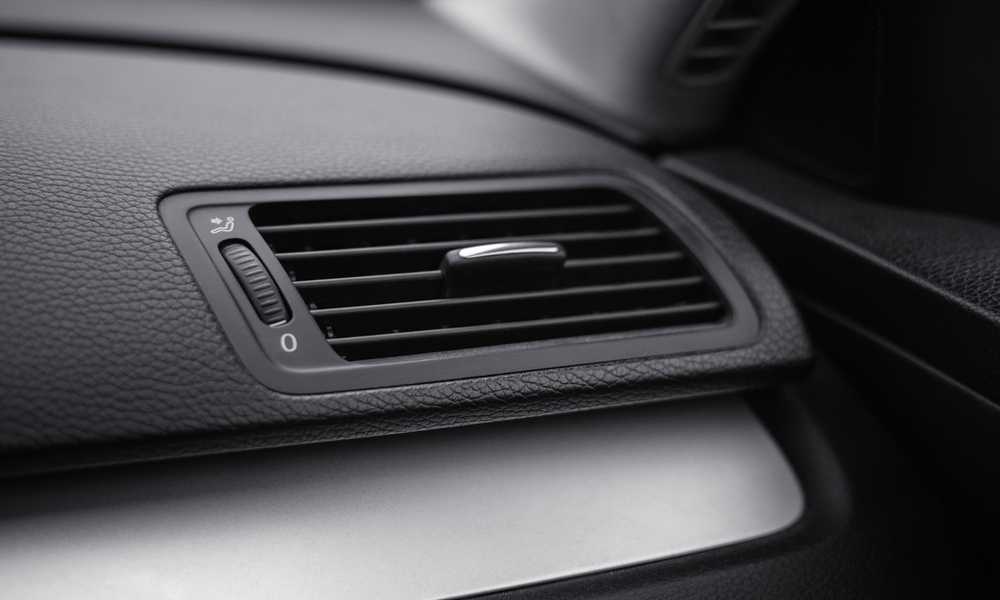Is there anything more frustrating than turning on your car’s air conditioner and hearing a mysterious hissing sound? It’s not only annoying, but it can also be a sign of an underlying issue with your vehicle’s AC system. But fear not! In this blog post, we’ll explore the possible causes of that dreaded hissing sound from car AC and provide you with some practical solutions to fix it. So buckle up and let’s dive into the world of car AC troubleshooting!
Causes of car AC make hissing sound
1. Refrigerant gas in expansion valve
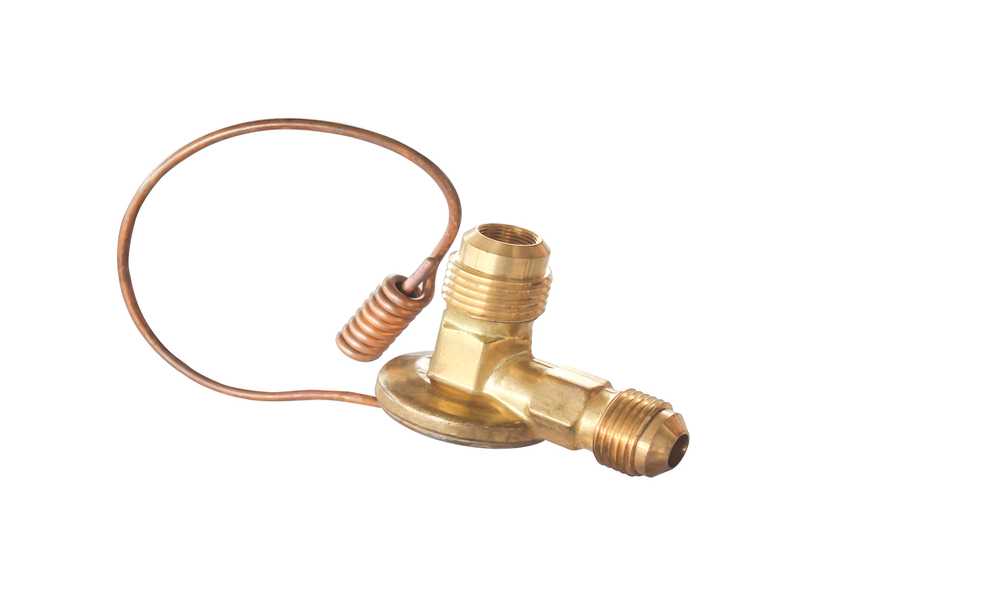
One of the possible causes of a hissing sound coming from your car’s AC system is when there is an issue with the refrigerant gas in the expansion valve. The expansion valve is responsible for controlling the flow of refrigerant into the evaporator coil, where it absorbs heat and cools down the air that blows into your car.
If there is a problem with this valve, such as a blockage or malfunction, it can cause the refrigerant gas to escape under high pressure, resulting in a hissing sound. This could be due to wear and tear over time or even debris clogging up the valve.
To fix this issue, you may need to have your expansion valve inspected and replaced if necessary by a professional technician. They will be able to diagnose any issues with your AC system accurately and provide appropriate solutions.
Remember that attempting DIY repairs on your car’s AC system can be dangerous and complex, so it’s always best to leave it to trained professionals who have experience working with automotive air conditioning systems.
2. Refrigerant leaks
Refrigerant leaks in your car’s AC system can be one of the main causes for that annoying hissing sound. These leaks occur when there is a break or hole in the refrigerant lines, allowing the gas to escape. There are several reasons why refrigerant leaks may occur. It could be due to old or worn-out seals, corrosion on the metal components, or even damage from accidents or collisions. Regardless of the cause, it’s important to address these leaks as soon as possible to prevent any further damage.
If you suspect a refrigerant leak in your car’s AC system, there are a few signs you can look out for. One of the most obvious signs is reduced cooling performance – if your AC isn’t blowing cold air like it used to, then there might be a leak. Another sign is an oily residue around any fittings or connections in the AC system.
To fix a refrigerant leak, it’s best to seek professional help from an experienced mechanic who specializes in automotive AC systems. They will have the necessary tools and expertise to locate and repair any leaks effectively.
Remember that refrigerants are harmful substances that should only be handled by trained professionals. Attempting DIY repairs without proper knowledge and equipment can lead to further damage and potential health risks. By addressing refrigerant leaks promptly and getting them repaired by professionals, you can ensure that your car’s AC system continues working efficiently while eliminating that pesky hissing sound!
3. Bad condenser fan motor
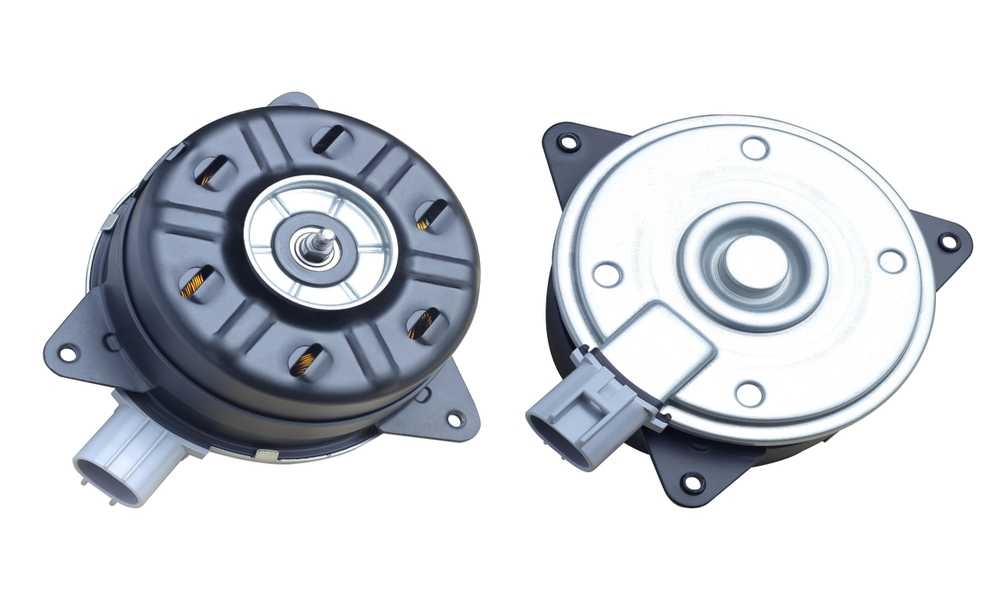
One of the possible causes for a hissing sound coming from your car’s AC is a bad condenser fan motor. The condenser fan motor plays a crucial role in cooling down the refrigerant that flows through the AC system. When this component malfunctions, it can lead to various issues, including the production of unusual sounds.
A bad condenser fan motor may result in reduced airflow or complete failure of air circulation within the AC system. As a result, pressure builds up and causes the refrigerant to make a hissing noise as it escapes through any available openings. This can be quite alarming and should not be ignored.
To fix this issue, you will likely need to replace the faulty condenser fan motor with a new one. It is recommended to consult with a professional technician who specializes in car AC systems to properly diagnose and address the problem. Remember, addressing any issues with your car’s AC system promptly can help prevent further damage and ensure optimal performance during hot summer days.
4. Overcharged system
An overcharged system is another potential cause for the hissing sound coming from your car’s AC. This occurs when there is an excessive amount of refrigerant in the system, leading to increased pressure levels. The high-pressure gas can escape through small leaks or gaps, resulting in a hissing noise.
When the AC system is overcharged, it puts unnecessary strain on its components, such as the compressor and valves. This can lead to poor performance and even damage to these vital parts of the AC system.
To fix an overcharged system, it is essential to drain the excess refrigerant and ensure that you have the correct amount based on your vehicle’s specifications. This process should be carried out by a qualified technician who has proper knowledge and equipment for handling refrigerants safely.
Preventing an overcharged system involves regular maintenance checks on your AC system. It is crucial not to add refrigerant without proper diagnosis and understanding of the issue at hand. Remember that maintaining optimal levels of refrigerant in your car’s AC system will help keep it running smoothly and prevent any unwanted hissing sounds or other complications down the road.
5. Internal valve leak
One of the possible causes for a hissing sound coming from your car’s AC is an internal valve leak. This occurs when there is a problem with one of the valves within the AC system, causing refrigerant to escape and create a hissing noise.
Internal valve leaks can be caused by various factors such as wear and tear, corrosion, or damage to the valves themselves. When these valves become faulty, they may not close properly, allowing refrigerant to leak out.
If you suspect that your car’s AC has an internal valve leak, it’s important to have it inspected and repaired by a professional technician. They will be able to diagnose the issue and determine if any valves need to be replaced.
Ignoring an internal valve leak can lead to further damage in your AC system and potentially result in decreased cooling performance or complete failure of the system. So if you notice any hissing sounds coming from your car’s AC, it’s best to address the issue promptly. Remember that dealing with internal valve leaks requires expertise and specialized tools, so it’s always recommended to seek professional help rather than attempting DIY repairs.
6. Compressor issues
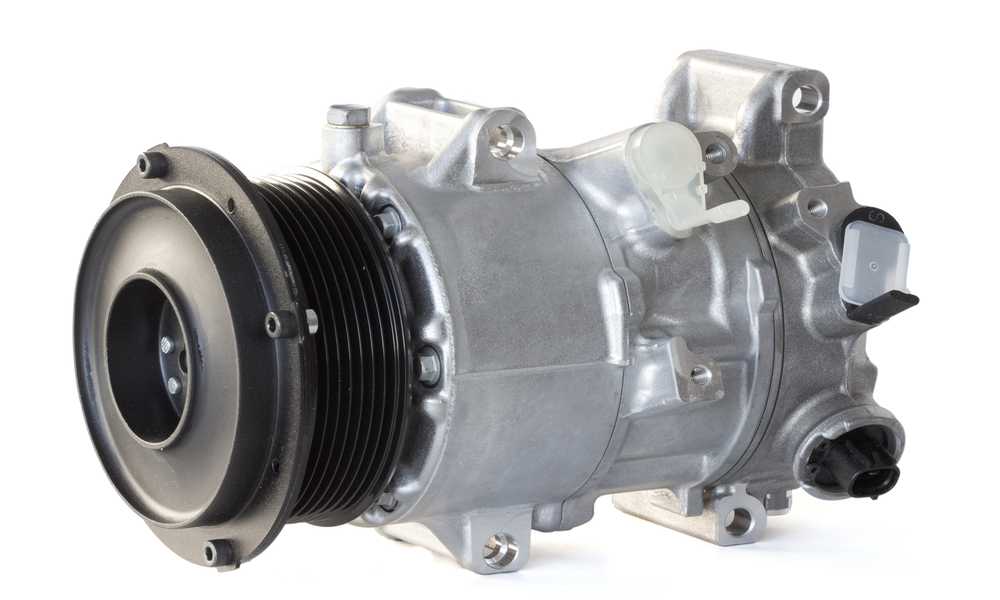
Compressor issues can also be a common cause of the hissing sound coming from your car’s AC. The compressor is responsible for pressurizing and circulating the refrigerant throughout the system. If there are any problems with the compressor, it can result in a variety of issues, including hissing noises.
One possible problem could be a faulty compressor clutch. The clutch engages and disengages the compressor as needed. If it becomes worn or damaged, it may not engage properly, causing a hissing sound.
Another issue could be an internal valve leak within the compressor itself. This can occur if the valve seals become worn or damaged over time. As air escapes through these leaks, it can create a distinct hissing noise. Additionally, if there is excessive debris or dirt buildup on the compressor blades, it can disrupt proper airflow and lead to unusual sounds like hissing.
It’s important to have any compressor issues addressed by a professional technician as soon as possible to prevent further damage to your AC system. They will be able to diagnose and repair any problems with your car’s compressor to ensure optimal performance and eliminate that annoying hissing sound. Stay tuned for more information on how you can fix this issue!
7. Frozen expansion valve
One possible cause of a hissing sound coming from your car’s AC system is a frozen expansion valve. The expansion valve, also known as the thermal expansion valve, plays a crucial role in regulating the flow of refrigerant through the system.
When this valve becomes frozen or blocked, it can disrupt the normal circulation of refrigerant and lead to issues with your AC unit. As a result, you may hear a hissing sound as pressure builds up in certain areas of the system.
A frozen expansion valve can occur due to several reasons, including insufficient airflow across the evaporator coil or low levels of refrigerant. When warm air passes over the evaporator coil, moisture condenses on its surface and can freeze if airflow is restricted.
To fix this issue, it’s important to address any underlying problems that are causing the freezing. This may involve cleaning or replacing dirty air filters, checking for leaks and ensuring proper refrigerant levels.
If you suspect that a frozen expansion valve is causing your car’s AC to make a hissing sound, it’s best to consult with an experienced mechanic who can diagnose and resolve the issue effectively. Ignoring this problem could lead to further damage and costly repairs down the line.
Remember that routine maintenance is key to keep your car’s AC running smoothly. Regularly inspecting and servicing your vehicle’s cooling system will help prevent issues like frozen expansion valves from occurring in the first place.
So if you’re experiencing a hissing sound from your car’s AC unit, don’t ignore it! Take action promptly by consulting with an expert who can identify and rectify any potential problems before they escalate into more significant issues.
How to fix hissing sound in car ac?
When it comes to fixing a hissing sound in your car’s AC, there are a few steps you can take to troubleshoot and resolve the issue. First, check for any visible signs of refrigerant leaks. This could include oily residue or wet spots around fittings and connections. If you do find a leak, it is important to have it repaired by a professional.
Another possible cause of the hissing sound could be an overcharged system. Too much refrigerant can cause excessive pressure and result in noise. In this case, you may need to have the system evacuated and recharged with the correct amount of refrigerant.
A faulty condenser fan motor can also lead to hissing sounds from the AC unit. The fan motor helps cool down the condenser coil, so if it is not functioning properly, it can cause increased pressure and noise.
If none of these solutions fix the problem, it may be necessary to have your compressor inspected. Compressor issues can sometimes manifest as hissing sounds. A qualified technician will be able to diagnose any problems with the compressor and recommend repairs or replacements if necessary.
Fixing a hissing sound in your car’s AC requires thorough troubleshooting and possibly professional assistance depending on the underlying cause. By addressing potential issues such as refrigerant leaks, an overcharged system, faulty condenser fan motors, or compressor problems early on, you’ll ensure that your car’s AC operates smoothly without any annoying noises.
Why does my car’s air conditioner make hissing noises?
Have you ever noticed a hissing sound coming from your car’s air conditioner? If so, you may be wondering why it happens. There are several possible reasons for this annoying noise.
One of the most common causes is a refrigerant leak. When there is a leak in the AC system, the refrigerant gas can escape and create a hissing sound as it exits through the leak. Another potential cause is an issue with the expansion valve. If there is too much refrigerant gas in the expansion valve, it can lead to excess pressure and result in a hissing noise.
A bad condenser fan motor can also be to blame for the hissing sound. This motor helps cool down the condenser coil, and if it malfunctions, it can cause abnormal noises like hissing. Additionally, an overcharged AC system or an internal valve leak can contribute to this problem.
Compressor issues are another possibility. The compressor plays a crucial role in cooling down your car’s interior by compressing and circulating refrigerant gas. If there are any problems with the compressor, such as worn-out components or leakage, it can lead to strange noises including hissing sounds.
A frozen expansion valve could be causing that unwanted noise from your car’s air conditioner. When moisture accumulates on this valve due to improper maintenance or usage patterns (such as running your AC on high all day), ice can form around it and restrict proper airflow.
If you’re experiencing any of these issues with your car’s air conditioner making hissing noises when turned on or off or while accelerating, we recommend consulting with an experienced technician who specializes in automotive HVAC systems diagnosis and repair.
Remember that addressing these issues early on will not only eliminate those bothersome sounds but also ensure optimal cooling performance and prevent further damage to your vehicle’s AC system! So don’t delay – get that hiss fixed today!
Why does hissing sound from car AC when the engine is shut off?
One common issue that car owners may encounter is a hissing sound coming from the car’s AC when the engine is shut off. This can be quite puzzling and concerning, but there are a few possible explanations for this phenomenon.
One reason why you might hear a hissing sound from your car’s AC when the engine is shut off is due to residual pressure in the system. When you turn off your engine, the compressor stops running, but there may still be some refrigerant gas circulating through the system. As this gas moves through various components, such as valves and hoses, it can create a hissing or releasing sound.
Another possibility could be related to temperature fluctuations inside the AC system. When you turn off your engine, especially after using the air conditioner for an extended period of time on a hot day, there will likely be differences in temperature between different parts of the system. These temperature variations can cause expansion or contraction of components, leading to sounds like hissing or popping.
It’s worth noting that not all cases of hissing sounds when shutting off your car’s AC are indicative of a problem. Sometimes these sounds are simply part of normal operation and do not require any immediate action. However, if you notice any other accompanying issues with your AC performance or suspect something might be wrong, it’s always best to have it checked by a professional technician.
While hearing a hissing sound from your car’s AC when shutting off the engine can be worrisome at first glance; more often than not it does not signify anything serious. But if you have concerns about its performance or notice other problems along with this noise then seeking professional help would certainly bring peace of mind
Why does my car’s AC make hissing sound and not cooling?
One of the most frustrating issues you can encounter with your car’s AC is when it starts making a hissing sound and fails to cool properly. This can be quite perplexing, as the purpose of an AC is to provide cool air during hot weather. So, what could be causing this problem?
There are several possible reasons why your car’s AC might make a hissing sound and not cool adequately. One common culprit is refrigerant leaks. If there is a leak in the system, it can cause the refrigerant levels to drop, resulting in reduced cooling capacity.
Another potential cause could be a faulty compressor or compressor clutch. The compressor plays a crucial role in cooling the air by compressing and circulating the refrigerant throughout the system. If it malfunctions or becomes worn out, it may produce unusual sounds like hissing.
Furthermore, a clogged or dirty condenser coil could also lead to inadequate cooling performance and strange noises from your AC unit. The condenser coil helps dissipate heat from the refrigerant before it gets circulated back into your vehicle’s cabin.
In some cases, an overcharged system can result in hissing sounds and poor cooling efficiency. Overcharging occurs when too much refrigerant is added to the system beyond its recommended capacity.
Keep in mind that these are just some potential causes for your car’s AC making hissing sounds while failing to provide adequate cooling. It’s essential to have a professional mechanic diagnose and fix any issues promptly so that you can enjoy comfortable temperatures inside your vehicle once again!
Why does my car’s AC make hissing noise when turned on?
When you turn on your car’s AC and hear a hissing noise, it can be quite unsettling. But why does this happen? There could be several reasons for the hissing sound when you turn on your car’s AC.
One possible cause is that there may be a refrigerant leak in the system. This can lead to a decrease in cooling efficiency and the hissing sound could be the result of the escaping refrigerant.
Another reason could be an issue with the compressor. The compressor plays a crucial role in circulating refrigerant throughout the system, so if it is faulty or damaged, it can generate strange noises including hissing.
Additionally, a blocked or frozen expansion valve can also cause a hissing sound when you turn on your car’s AC. This valve regulates how much refrigerant flows into the evaporator coil, and if it becomes obstructed or frozen, it can create unusual sounds.
It is important to address any issues with your car’s AC as soon as possible to avoid further damage and ensure optimal performance. Consulting with a professional mechanic will help diagnose and resolve any problems causing the hissing noise from your car’s AC unit.
Why does my car’s AC make hissing sound when accelerating?
When you start to accelerate your car, you may notice a hissing sound coming from the AC system. This can be concerning and may leave you wondering what could be causing it. There are a few possible reasons why your car’s AC is making this noise when accelerating.
One possibility is that there is a leak in the refrigerant lines or fittings. When the AC system is under increased pressure during acceleration, any small leaks in the system can result in a hissing sound as air escapes.
Another potential cause could be a problem with the expansion valve. The expansion valve controls the flow of refrigerant through the evaporator coil and if it becomes worn or faulty, it can create a hissing noise when put under strain during acceleration.
Additionally, issues with the compressor could also contribute to this noise. If there is damage or wear on the compressor components, such as valves or pistons, it can lead to abnormal noises like hissing when more power is required during acceleration.
It’s important to have these issues addressed by a professional mechanic who specializes in automotive AC systems. They will be able to diagnose and repair any underlying problems causing the hissing sound so that you can enjoy cool air without any unexpected noises while driving. Remember, always prioritize regular maintenance and inspections for your car’s AC system to prevent potential problems before they arise!
Outside ac unit making high-pitched noise
Outside AC units can sometimes make high-pitched noises, and it’s important to address this issue promptly. One potential reason for this noise is a problem with the fan motor. If the fan motor is malfunctioning or has loose parts, it may produce a high-pitched whining sound. Another possibility is that debris, such as leaves or branches, has become trapped in the unit and is causing the noise.
It’s also possible that the noise could be coming from the compressor itself. The compressor plays a crucial role in cooling your home and if it becomes damaged or worn out, it may emit a high-frequency sound. Additionally, refrigerant leaks can cause hissing sounds and should be addressed immediately by a professional.
To determine what exactly is causing the high-pitched noise from your outside AC unit, it’s best to contact an HVAC technician. They have the expertise and tools necessary to diagnose and fix any issues with your system.
Remember, regular maintenance of your AC unit can help prevent these types of problems from occurring in the first place. So don’t hesitate to schedule routine inspections and cleanings to keep your AC running smoothly all year round!
Tell me the sound of a bad AC compressor?
The sound of a bad AC compressor can vary depending on the specific issue it is experiencing. However, there are some common sounds that may indicate a problem with the compressor.
One possible sound is a loud or high-pitched squealing noise. This could be caused by a worn-out belt or a misaligned pulley, which can put strain on the compressor and cause it to make unusual noises. Another potential sound is a grinding or rattling noise. This could indicate that the internal components of the compressor are damaged or loose, leading to friction and vibrations.
A clicking or ticking noise may also occur if there is an electrical issue with the compressor, such as a faulty relay switch. This can disrupt the normal functioning of the compressor and result in strange sounds.
It’s important to note that these sounds alone cannot definitively diagnose a bad AC compressor. If you suspect an issue with your AC system, it’s always best to have it inspected by a professional technician who can accurately diagnose and resolve any problems.
How do I check an AC expansion valve?
When it comes to checking an AC expansion valve, there are a few steps you can take to determine if it’s functioning properly. First, locate the expansion valve in your car’s AC system. It is typically found near the evaporator coil or inside the dash.
Once you’ve located the valve, visually inspect it for any signs of damage or leakage. Look for any cracks or corrosion that may indicate a problem. If everything appears intact, move on to testing the valve. One way to check the functionality of the expansion valve is by using a pressure gauge. Connect the gauge to both sides of the valve and observe the readings. The pressure should be within manufacturer specifications.
Another method involves using a temperature probe. Place one end of the probe before and after the expansion valve while running your car’s AC system at full blast. The temperature difference should be significant, indicating that refrigerant flow is occurring as intended.
If you’re unsure about how to check an AC expansion valve yourself, it’s always best to consult with a professional mechanic who has experience working with automotive air conditioning systems. Remember, proper maintenance and regular inspections are key in keeping your car’s AC system running smoothly and efficiently!
How Do I Check My AC Refrigerant Level?
Checking the refrigerant level in your car’s AC system is an important part of its maintenance. If you notice that your AC is not cooling as well as it used to, it could be a sign of low refrigerant levels. Here are a few steps to help you check the refrigerant level:
1. Start by turning on your car and allowing it to run for a few minutes to warm up.
2. Locate the low-pressure port on the AC system. It is usually located near the compressor or accumulator.
3. Attach a pressure gauge to the low-pressure port and read the pressure reading.
4. Compare the reading on the gauge with the manufacturer’s specifications for your vehicle.
5. If the pressure reading is below the recommended range, it may indicate that there is insufficient refrigerant in the system.
6. In such cases, it is best to consult a professional mechanic who can properly diagnose and address any issues with your AC system.
Remember, checking and maintaining proper refrigerant levels in your car’s AC system can help ensure optimal performance and cool air during those hot summer months!
How can I check my AC temperature?
Checking the temperature of your car’s AC is a simple task that can help you determine if there are any issues with the system. To check the AC temperature, start by turning on your car and letting it run for a few minutes to allow the AC to reach its maximum cooling capacity.
Next, locate the air vents in your car and set them to their coldest setting. Place a thermometer at one of the vents and wait for a few minutes until it stabilizes. The reading on the thermometer will give you an indication of how well your AC is cooling.
Ideally, you should expect to see temperatures between 40°F (4°C) and 50°F (10°C). If the temperature reading is significantly higher or lower than this range, it could indicate that there is a problem with your AC system.
If you notice that the temperature is consistently too high or too low, it may be time to have your AC system inspected by a professional technician. They will be able to diagnose any underlying issues and recommend appropriate repairs or maintenance. Remember, checking your car’s AC temperature regularly can help ensure that it continues to cool effectively and keep you comfortable while driving.
How often should car AC be recharged?
One question that car owners often ask is how often should their car AC be recharged? Well, the frequency of AC recharge depends on several factors.
First and foremost, it’s essential to understand that an air conditioning system in a well-maintained car shouldn’t lose refrigerant over time. If your AC is losing refrigerant frequently, there might be an underlying issue that needs to be addressed by a professional mechanic.
However, over time, normal wear and tear can cause small leaks in the AC system. These leaks may lead to a gradual loss of refrigerant, resulting in decreased cooling performance. In such cases, you may need to recharge your car’s AC more frequently.
Additionally, extreme weather conditions can also impact the frequency of AC recharges. If you live in an area with extremely hot summers or use your car’s AC excessively during these months, you might need more frequent recharging.
It’s best to consult with a qualified mechanic who can assess the condition of your car’s AC system and provide recommendations on how often it should be recharged based on its specific needs. Remember that regular maintenance and prompt repairs are key to keeping your car’s air conditioning running smoothly for longer periods without the need for constant recharging.
How long does car AC last?
How long does car AC last? This is a common question among car owners, and the answer can vary depending on several factors. One of the main factors that can affect the lifespan of a car’s AC system is how well it is maintained. Regular maintenance, such as replacing filters and checking for refrigerant leaks, can help prolong the life of the AC system. The quality of the components used in the AC system also plays a role in its longevity. Higher-quality components are often more durable and may last longer than cheaper alternatives.
Another factor to consider is how often the AC system is used. If you use your car’s AC frequently, it may wear out faster than if you only use it occasionally. In general, with proper maintenance and care, a car’s AC system should last anywhere from 7 to 15 years. However, this is just an estimate and individual results may vary.
If you notice any issues with your car’s AC system, such as decreased cooling performance or strange noises, it’s important to have it inspected by a professional mechanic. They will be able to diagnose any problems and recommend appropriate repairs or replacements. Remember that regular maintenance and addressing any issues promptly can help extend the lifespan of your car’s AC system. So take good care of your vehicle and enjoy cool air for many years to come!
Why does my car not cool down?
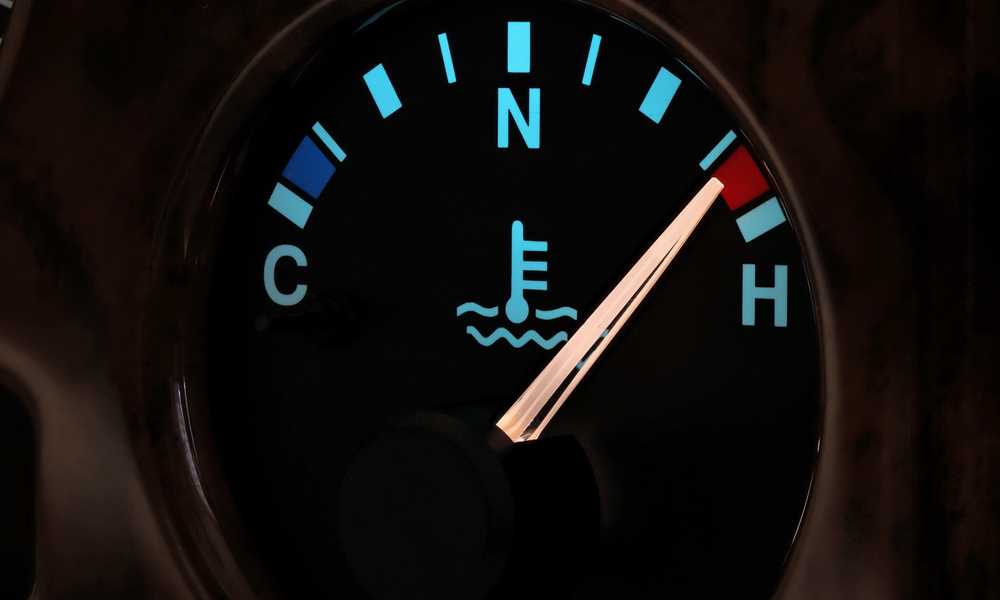
One common issue that car owners often encounter is when their car’s air conditioning system fails to cool down properly. This can be quite frustrating, especially during hot summer months. But why does this happen?
There could be several reasons why your car’s AC is not cooling down effectively. One possibility is that the refrigerant levels are low. Refrigerant plays a crucial role in absorbing heat from inside the cabin and releasing it outside. If there is a leak or insufficient amount of refrigerant, the AC system won’t be able to cool the air.
Another potential culprit could be a faulty compressor. The compressor is responsible for pressurizing and circulating the refrigerant throughout the AC system. If it malfunctions or fails altogether, it will hinder the proper cooling process.
A dirty or clogged condenser can also prevent your car’s AC from cooling efficiently. The condenser helps dissipate heat from the refrigerant before it enters the expansion valve. If it becomes clogged with dirt, debris, or grime over time, it will impede heat transfer and reduce overall cooling performance.
Additionally, a malfunctioning thermostat or sensor may be causing issues with temperature regulation in your car’s AC system. These components help monitor and adjust temperature levels based on user settings. If they are not functioning correctly, they may fail to signal the necessary adjustments needed to achieve optimal cooling.
It’s important to address these issues promptly by seeking professional assistance from a qualified mechanic who specializes in automotive air conditioning systems. They will have the expertise and tools required to diagnose and resolve any underlying problems effectively.
Remember that regular maintenance of your vehicle’s AC system is crucial for its longevity and optimal performance. Regularly checking refrigerant levels, cleaning filters and vents, as well as scheduling routine inspections can help ensure that your car stays cool even on scorching days!
Final thoughts
In this article, we have discussed the various causes of a hissing sound coming from your car’s AC system. From refrigerant gas issues to compressor problems, there are several potential culprits behind this annoying noise. It is essential to identify and address these issues promptly to ensure the smooth functioning of your car’s AC.
If you notice a hissing sound in your car’s AC, it is recommended to take it to a qualified mechanic or technician for diagnosis and repair. They will be able to pinpoint the exact cause of the problem and provide you with an effective solution.
Regular maintenance and servicing of your car’s AC system can also help prevent such issues from arising in the first place. Follow manufacturer-recommended maintenance schedules and keep an eye out for any signs of trouble.
Remember that ignoring a hissing sound from your car’s AC can lead to further damage and expensive repairs down the line. So, don’t delay in getting it checked out.
By understanding the possible causes behind a hissing sound in your car’s AC system and taking appropriate action, you can enjoy cool air without any unnecessary noises or worries. Stay proactive when it comes to maintaining your vehicle’s AC system, ensuring optimal comfort during those hot summer drives!
